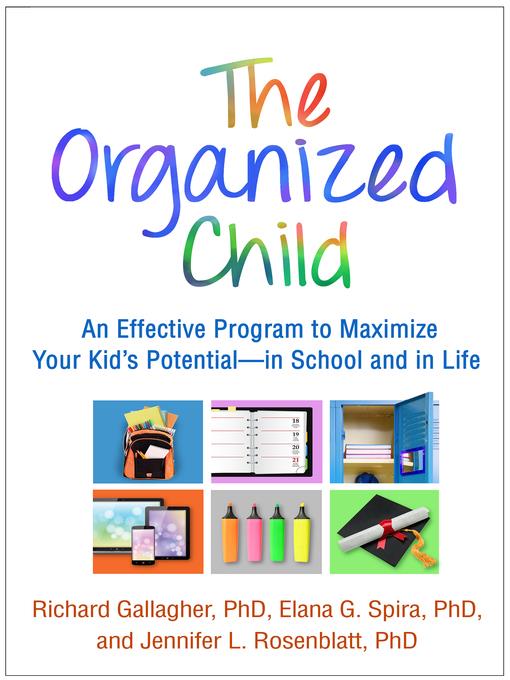
The Organized Child
An Effective Program to Maximize Your Kid's Potential—in School and in Life
برنامهای موثر برای به حداکثر رساندن پتانسیل کیفهای شما در مدرسه و زندگی
کتاب های مرتبط
- اطلاعات
- نقد و بررسی
- دیدگاه کاربران
نقد و بررسی

January 1, 2018
According to child psychologists Gallagher, Elana G. Spira, and Jennifer L. Rosenblatt, creators of the Organizational Skills Training (OST) program at New York University's Langone Medical Center, 15 to 20 percent of children struggle with deficits in organization, time management, and planning behaviors. Help is at hand for parents of children who forget to write down homework assignments, misplace their backpacks, and cram for tests at the last minute in this step-by-step guide to tackling some of the most common challenges. Offering strategies that were successful for students with attention-deficit/hyperactivity disorder in the OST program, the authors assert that age seven to 13 is a crucial period in a child's life, when parents can help prevent bad habits from becoming ingrained. They promote a coaching-role approach for parents, which involves first looking in the mirror at their own example (and correcting). Each chapter provides forms to help parent and child organize, as well as prompts for constructive conversations. VERDICT Chock-full of extras (such as a downloadable appendix), this guide will be valuable for parents who need support in this area.
Copyright 2018 Library Journal, LLC Used with permission.

Starred review from February 12, 2018
Parents of children with ADHD or other executive dysfunction conditions will find this evidence-based program instantly usable, extremely clear, and sensitive to both the child’s self-esteem and the adult’s likely frustration. The authors, all psychologists, who developed their methods at the Child Study Center at New York University’s Langone Medical Center, aim to remove blame or accusations of laziness by having the child imagine a superhero-like “Mastermind” in the brain who’s plagued by mischievous “Glitches”: Go-Ahead-Forget-It Glitch, Go-Ahead-Lose-It Glitch, and so on. Thus, the child can externalize the problematic behavior and internalize the solutions. The method’s central, practical tenet is to work on one skill at a time with a sensible progression, using charting, practice, encouragement, and short-term rewards. The authors build trust in what might seem like an inflexible step-by-step process by bringing real-world experience to their suggestions, such as the observation that accordion folders are better than three-ring binders for disorganized students because papers can be filed more simply. Though the main focus is on the 7–13 age range, the authors also suggest modifications to make their program work for teens. With this excellent workbook, Gallagher, Spira, and Rosenblatt will provide hope and motivation for the burnt-out caregivers of “hopeless” disorganized kids.

March 1, 2018
According to child psychologists Gallagher, Spira, and Rosenblatt, creators of the Organizational Skills Training (OST) program at New York University's Langone Medical Center, 15 to 20 percent of children struggle with deficits in organization, time management, and planning behaviors. Help is at hand for parents of children who forget to write down homework assignments, misplace their backpacks, and cram for tests at the last minute in this step-by-step guide to tackling some of the most common challenges. Offering strategies that were successful for students with attention-deficit/hyperactivity disorder in the OST program, the authors assert that age seven to 13 is a crucial period in a child's life, when parents can help prevent bad habits from becoming ingrained. They promote a coaching-role approach for parents, which involves first looking in the mirror at their own example (and correcting). Each chapter provides forms to help parent and child organize, as well as prompts for constructive conversations. VERDICT Chock-full of extras (such as a downloadable appendix), this guide will be valuable for parents who need support in this area.-Julia M. Reffner, Richmond, VA
Copyright 2018 School Library Journal, LLC Used with permission.

























دیدگاه کاربران